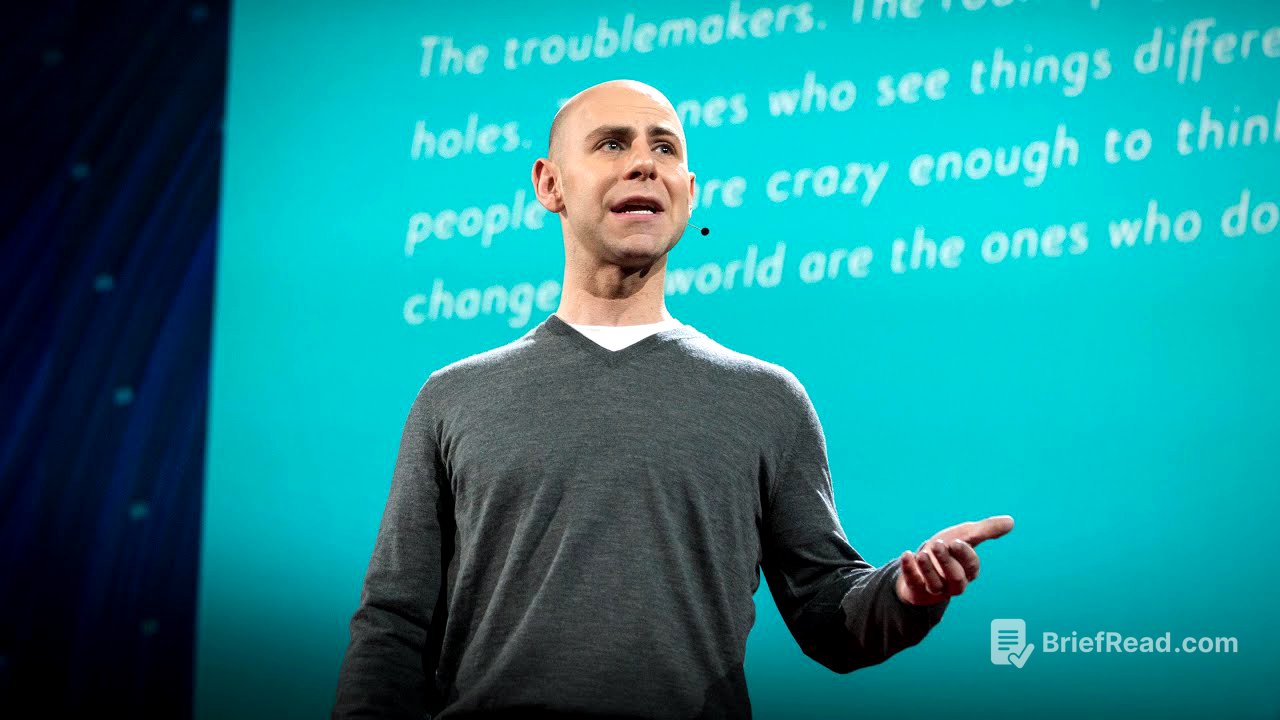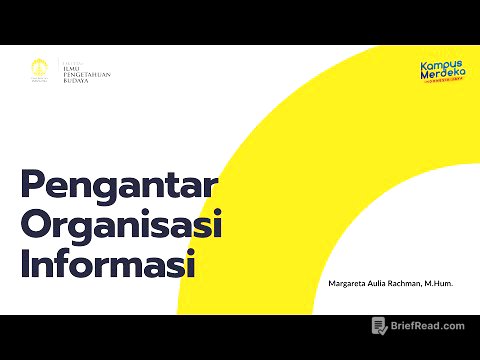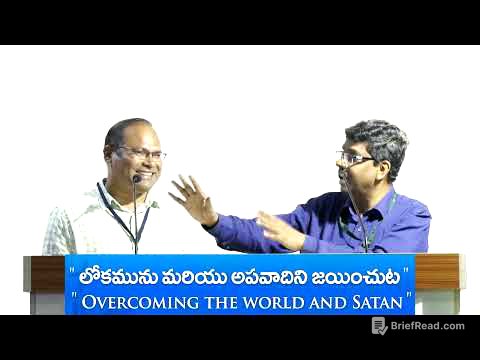TLDR;
Adam Grant discusses the qualities of "originals" - people who champion new ideas and challenge the status quo. He shares his experience of initially rejecting Warby Parker, highlighting how originals often exhibit traits like strategic procrastination, managing doubt, and generating numerous ideas. Grant emphasizes that originality isn't about being first but about being different and better, and that fear of failure should not prevent one from pursuing innovative ideas.
- Originals often strategically procrastinate to foster creativity.
- Managing self-doubt and embracing idea doubt is crucial for innovation.
- Generating a high volume of ideas increases the likelihood of finding truly original ones.
An Investment Mistake [0:13]
Adam Grant recounts his initial assessment of Warby Parker, a company that aimed to disrupt the eyewear industry through online sales. He declined to invest because the founders had backup plans and a non-functional website close to their launch date. Grant now acknowledges this as a significant error, as Warby Parker became a highly innovative and successful company valued at over $1 billion. This experience led him to study "originals," individuals who drive creativity and change by challenging norms and acting on their novel ideas.
The Power of Procrastination [1:42]
Grant explores the concept of procrastination and its unexpected link to creativity. He admits to being a "pre-crastinator" who rushes to complete tasks, contrasting this with the benefits of moderate procrastination. Research showed that individuals who procrastinate moderately tend to be more creative than those who rush or habitually delay. This is because procrastination allows for idea incubation, enabling non-linear thinking and unexpected connections.
Historical Examples of Procrastination [6:12]
Grant provides historical examples to support the idea that procrastination can aid creativity. Leonardo da Vinci spent 16 years on the Mona Lisa, using the time to experiment with optics and refine his painting techniques. Martin Luther King Jr. famously revised his "I Have a Dream" speech until the last minute, allowing him to incorporate new ideas and improvise during his delivery. These examples illustrate that delaying finalization can lead to more innovative and impactful outcomes.
The Myth of the First-Mover Advantage [7:20]
Grant challenges the notion of the "first-mover advantage," citing research that shows pioneers have a higher failure rate compared to those who improve upon existing ideas. Companies like Facebook and Google waited before entering their respective markets, allowing them to learn from and improve upon earlier attempts. The key takeaway is that being different and better is more important than being first.
Managing Doubt and Fear [8:38]
Grant discusses the role of doubt and fear in the creative process. He distinguishes between self-doubt, which is paralyzing, and idea doubt, which is motivating. Originals often experience idea doubt, prompting them to test, experiment, and refine their concepts. He references a study linking browser choice (Firefox and Chrome vs. Internet Explorer and Safari) to work performance, suggesting that individuals who actively seek better options are more likely to challenge defaults and innovate.
Vuja De and Overcoming Fear [11:05]
Grant introduces the concept of "vuja de," the opposite of déjà vu, where one sees something familiar in a new light. He uses the example of the movie "Frozen," where the villain was reimagined as a misunderstood hero, leading to unprecedented success. Originals also experience fear, but they are more afraid of not trying than of failing. Elon Musk's ventures, like Tesla and SpaceX, exemplify this willingness to take risks despite the high probability of failure.
The Importance of Generating Ideas [12:41]
Grant emphasizes that people are often hesitant to share their ideas due to fear of judgment, but that generating a large number of ideas is essential for finding truly original ones. He points out that even great innovators like Thomas Edison had many failures. The quantity of work produced is a strong predictor of success, as it increases the likelihood of stumbling upon a breakthrough. Warby Parker's founders, for example, tested over 2,000 names before settling on their final choice.
Conclusion [14:32]
Grant concludes by summarizing the key traits of originals: they experience fear and doubt, they procrastinate, and they generate many ideas. He encourages the audience to embrace these qualities and not be discouraged by setbacks. By starting quickly but finishing slowly, managing doubt, and accepting the possibility of failure, individuals can unlock their creative potential and make a positive impact on the world.









